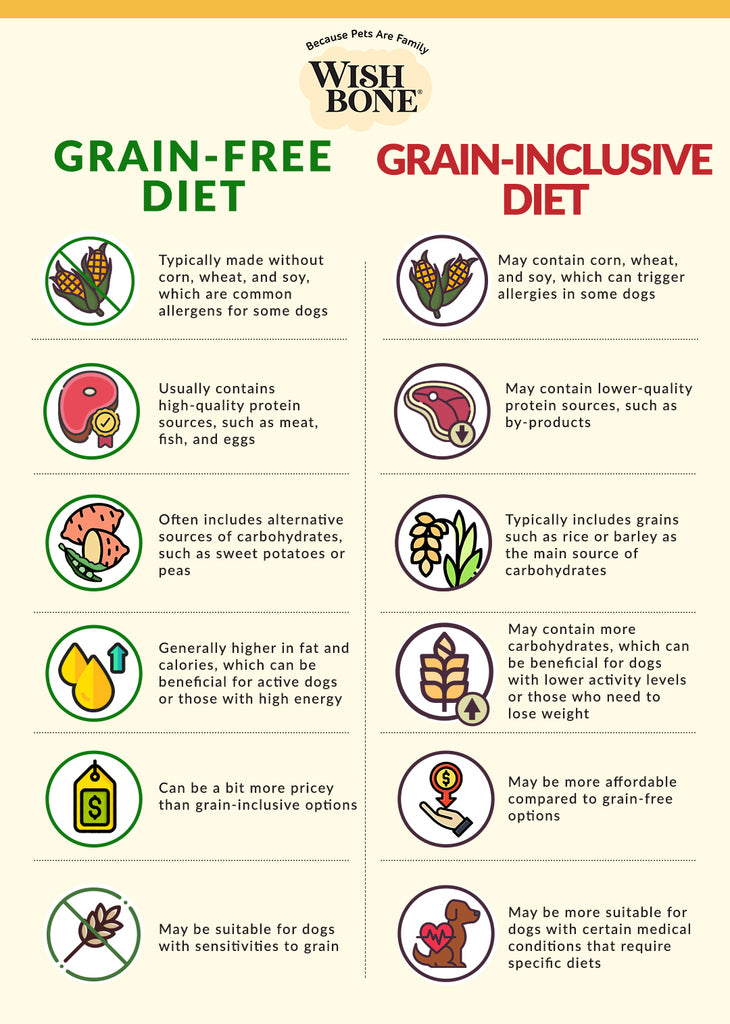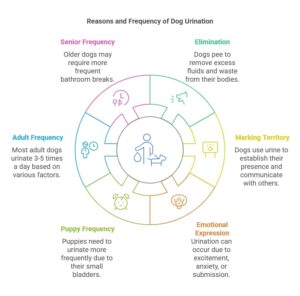Grain dog food contains ingredients like wheat, corn, and rice, while grain-free dog food excludes these grains. Owners often choose between them based on their dogs' dietary needs and sensitivities.
The debate between grain and grain-free dog food continues to gain attention among pet owners. Grain-inclusive diets provide essential carbohydrates, fiber, and nutrients that support overall health. Many dogs thrive on these traditional formulas, especially those without grain allergies. On the other hand, grain-free options cater to dogs with sensitivities or allergies, offering alternative sources of carbohydrates like sweet potatoes or peas.
This choice can help alleviate digestive issues in susceptible pets. Understanding your dog's specific needs is crucial for making an informed decision on their diet, ensuring they receive the best nutrition for a healthy life.
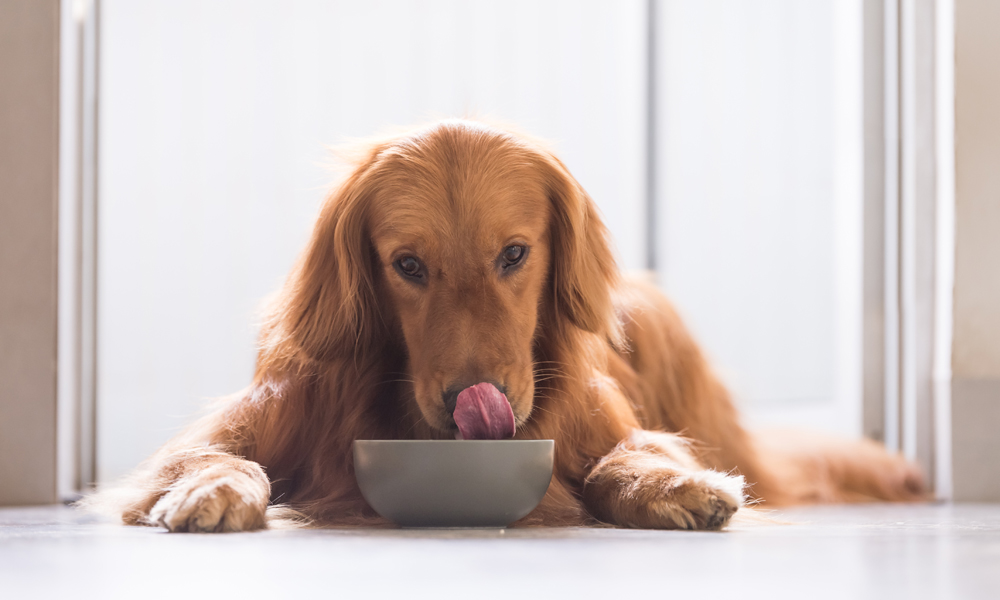
Credit: nutrisourcepetfoods.com
Table of Contents
ToggleIntroduction To Dog Nutrition
Understanding dog nutrition is vital for your pet's health. Dogs need a balanced diet. This diet includes proteins, fats, carbohydrates, vitamins, and minerals. The type of food impacts their energy levels, coat health, and overall well-being.
Key Nutrients For Dogs
Dogs require several key nutrients to thrive. Here are the essential ones:
- Proteins: Build and repair body tissues.
- Fats: Provide energy and support cell functions.
- Carbohydrates: Offer energy and aid digestion.
- Vitamins: Support various bodily functions and immunity.
- Minerals: Important for bone health and enzyme functions.
Each nutrient plays a unique role. A balanced diet helps maintain a healthy weight. This prevents obesity and related health issues.
The Role Of Grains
Grains can be part of a dog's diet. They provide carbohydrates and fiber. Here are some common grains found in dog food:
| Grain | Benefits |
|---|---|
| Brown Rice | Easy to digest, good energy source. |
| Oats | Rich in fiber, supports digestion. |
| Barley | Contains vitamins and minerals. |
Grains can provide several benefits. They help with digestion and energy levels. Some dogs may need grain-free diets due to allergies. Always consult your vet before making diet changes.
Unraveling Grain Dog Food
Grain dog food offers a balanced diet for dogs. It includes grains that provide essential nutrients. Understanding the benefits and common grains can help dog owners choose wisely.
Benefits Of Grains In Dog Food
Grains offer several advantages in dog food. Here are some key benefits:
- Energy Source: Grains are rich in carbohydrates. They provide energy for daily activities.
- Digestive Health: Whole grains contain fiber. Fiber aids digestion and maintains gut health.
- Essential Nutrients: Grains deliver vitamins and minerals. They support overall health and wellness.
- Protein Complement: Grains complement protein sources. This balance enhances nutritional value.
- Cost-Effective: Grain-inclusive foods are often more affordable. They provide a budget-friendly option for dog owners.
Common Grains Used
Various grains are commonly used in dog food. Here’s a list of popular grains:
| Grain | Benefits |
|---|---|
| Brown Rice | Easy to digest; rich in fiber. |
| Oats | Good source of vitamins; promotes healthy skin. |
| Barley | High in fiber; helps regulate blood sugar. |
| Quinoa | Complete protein; gluten-free option. |
| Wheat | Rich in carbohydrates; provides energy. |
Choosing the right grain can enhance your dog's diet. Look for whole grains for the best benefits. Always consult with a veterinarian before changing your dog's food.
Exploring Grain-free Dog Food
Grain-free dog food has gained popularity among pet owners. Many believe it offers better health benefits. Let's explore what grain-free dog food entails.
Why Go Grain-free?
Choosing grain-free dog food can be beneficial for many dogs. Here are some reasons:
- Food Allergies: Some dogs are allergic to grains.
- Digestive Issues: Grain-free diets may ease digestion.
- High Protein: These diets often contain more protein.
- Better Energy Levels: Dogs may feel more energetic.
Popular Grain-free Ingredients
Many ingredients replace grains in dog food. Here is a list of popular options:
| Ingredient | Benefits |
|---|---|
| Sweet Potatoes | Rich in vitamins and fiber. |
| Peas | Good source of protein. |
| Chickpeas | High in protein and nutrients. |
| Potatoes | Provides energy and is gluten-free. |
| Fruits | Offer vitamins and antioxidants. |
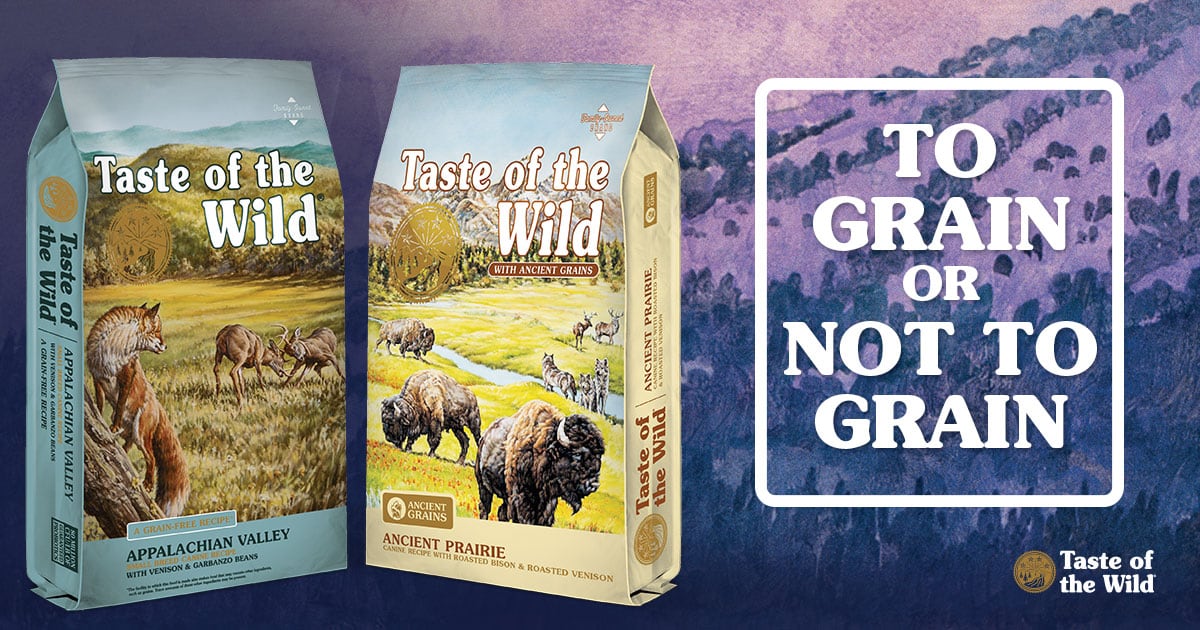
Credit: www.tasteofthewildpetfood.com
Health Impacts
The choice between grain and grain-free dog food affects your dog’s health. Understanding these impacts helps you make the best choice for your furry friend. Let’s explore how each type influences health, focusing on digestion and heart health.
Grain Dog Food And Digestion
Grain dog food contains ingredients like rice, corn, and oats. These grains can be beneficial for digestion. Here are some benefits:
- Grains are rich in fiber.
- Fiber aids in regular bowel movements.
- Grains help sustain energy levels throughout the day.
Some dogs may struggle with grain digestion. Signs include:
- Gas and bloating
- Diarrhea
- Skin irritations
Consult your vet for advice if your dog shows these signs. They can help determine the right diet for your dog.
Grain-free And Canine Heart Health
Grain-free diets often use potatoes or peas as substitutes. Some studies suggest a link between these diets and heart issues. Key points include:
| Grain-Free Food | Potential Risks |
|---|---|
| High in legumes | Possible dilated cardiomyopathy (DCM) |
| Low in taurine | May affect heart function |
Always monitor your dog’s health on a grain-free diet. Regular vet check-ups are essential. They will help you catch any potential heart issues early.
Myths Vs. Facts
Understanding the differences between grain and grain-free dog food is essential. Many myths surround these diets. Let's clarify these misconceptions by examining the facts.
Grain Allergies In Dogs
Many believe that dogs are allergic to grains. This idea is widespread but often misleading.
- Only a small percentage of dogs have true grain allergies.
- Most food allergies in dogs stem from proteins, not grains.
- Common allergens include beef, chicken, and dairy.
Grains like rice and oats provide essential nutrients. They can be beneficial for most dogs.
Consult a veterinarian before switching to a grain-free diet. This helps ensure the right choice for your pet.
Nutritional Completeness
Many think grain-free diets are always healthier for dogs. This isn't always true.
| Diet Type | Key Nutrients | Benefits |
|---|---|---|
| Grain-Based | Carbohydrates, Fiber, Vitamins | Supports energy and digestion |
| Grain-Free | Proteins, Healthy Fats | May help with weight control |
Both diets can be nutritionally complete. It's vital to choose high-quality brands. Read labels carefully to ensure a balanced diet.
Monitor your dog's health regularly. Adjust their diet based on their specific needs.
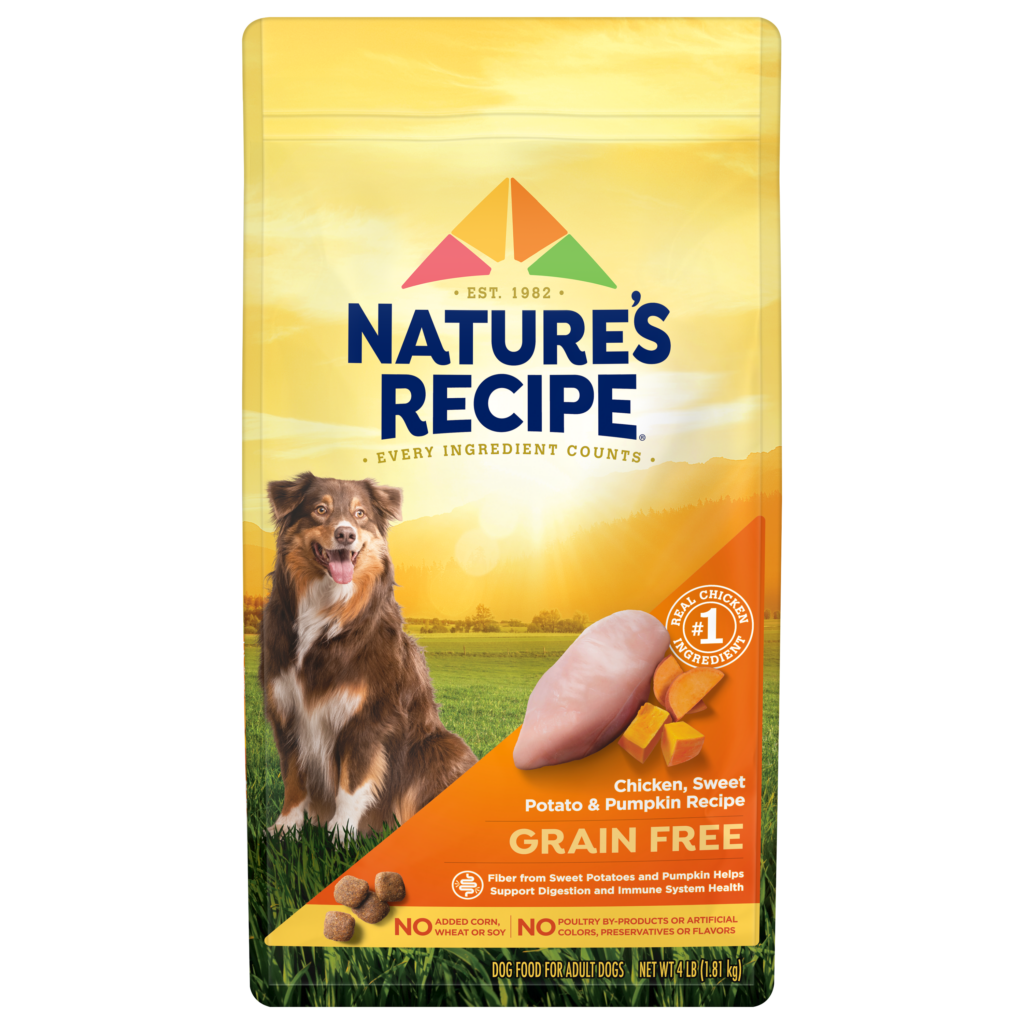
Credit: www.naturesrecipe.com
Choosing The Right Food For Your Dog
Choosing the right food for your dog is crucial. It affects their health and happiness. With options like grain and grain-free diets, understanding your dog's needs is essential.
Considering Your Dog’s Age And Activity
Your dog's age and activity level influence their dietary needs. Puppies, adult dogs, and seniors require different nutrients.
- Puppies: Need high protein for growth.
- Active Dogs: Require more calories and protein.
- Seniors: Benefit from lower calories and joint support.
Always consider your dog's activity level. Active dogs need more energy. Less active dogs may gain weight on high-calorie diets.
Understanding Your Dog's Health Needs
Health issues can dictate your dog's diet. Some dogs may have allergies or sensitivities to grains. Others might thrive on a grain-inclusive diet.
| Health Issue | Recommended Diet |
|---|---|
| Grain Allergies | Grain-Free Food |
| Obesity | Low-Calorie Grain Options |
| Digestive Issues | High-Fiber Grain-Free Food |
Consult your veterinarian for tailored advice. They can recommend diets based on your dog's specific health needs. Pay attention to ingredient labels. Quality matters more than popularity.
Case Studies
Case studies provide real-life examples of dog food choices. They reveal how different diets affect dogs' health and behavior. Let’s explore some success stories with grain and grain-free diets.
Success Stories With Grain Dog Food
Many dogs thrive on grain-inclusive diets. Below are some notable success stories:
- Max, the Golden Retriever: Max had skin issues. His owner switched to grain dog food. Within weeks, his skin improved significantly.
- Rex, the Beagle: Rex struggled with digestion. A grain-based diet helped regulate his bowel movements. He became more energetic and playful.
- Lucy, the Labrador: Lucy was overweight. Her owner chose a grain dog food with controlled calories. Lucy lost weight and gained muscle.
| Dog Name | Issue | Outcome |
|---|---|---|
| Max | Skin Issues | Improved Skin Health |
| Rex | Digestion Problems | Regular Bowel Movements |
| Lucy | Weight Gain | Healthy Weight Loss |
Improvements With Grain-free Diets
Many pet owners report improvements after switching to grain-free diets. Here are some success stories:
- Buddy, the Dachshund: Buddy had allergies. His owner changed to a grain-free diet. Allergic reactions decreased significantly.
- Sadie, the Poodle: Sadie experienced lethargy. A grain-free diet boosted her energy levels. Now, she plays more and enjoys walks.
- Toby, the French Bulldog: Toby had digestive issues. Switching to grain-free food improved his digestion and appetite.
| Dog Name | Issue | Outcome |
|---|---|---|
| Buddy | Allergies | Reduced Allergic Reactions |
| Sadie | Lethargy | Increased Energy Levels |
| Toby | Digestive Issues | Improved Digestion |
Final Thoughts
Choosing between grain and grain-free dog food can be tough. Each option has its benefits and drawbacks. Understanding your dog's specific needs is crucial for their health and happiness.
Balancing Diet And Health
Maintaining a balanced diet for your dog is vital. Both grain and grain-free foods can support health. Here are some key points to consider:
- Grain-Free Benefits: May help dogs with grain allergies.
- Grain Benefits: Provides essential nutrients and fiber.
- Protein Source: Look for high-quality protein in both types.
- Digestibility: Some dogs digest grains better than others.
Observe how your dog reacts to each type. Weight, energy level, and coat condition are good indicators of health. Regularly adjust their diet based on these signs.
Consultation With Veterinarians
Always consult with a veterinarian before changing your dog's diet. They can provide personalized recommendations based on your dog's health history. Here are some tips for discussing diet with your vet:
- Share your dog’s health concerns.
- Ask about specific dietary needs.
- Inquire about reputable brands.
- Discuss potential allergies or sensitivities.
A vet's guidance helps ensure your dog receives the best nutrition. Regular check-ups can monitor your dog's health as their diet changes.
Frequently Asked Questions
What Are The Benefits Of Grain Dog Food?
Grain dog food can provide essential nutrients and energy. It often includes whole grains like brown rice and oats. These ingredients can improve digestion and support heart health. Additionally, grains are cost-effective, making them accessible for pet owners. They can also help maintain healthy skin and a shiny coat.
Is Grain-free Dog Food Better For My Dog?
Grain-free dog food is beneficial for dogs with allergies or sensitivities. It typically contains alternative carbohydrates like sweet potatoes or peas. This can promote better digestion for some pets. However, not all dogs need a grain-free diet. Consult your veterinarian to determine the best option for your dog.
Can Grain-free Diets Cause Health Issues?
Yes, grain-free diets can lead to health concerns in some dogs. Studies have linked them to canine dilated cardiomyopathy (DCM) in certain breeds. This condition affects heart function and can be serious. It's essential to monitor your dog’s health if on a grain-free diet.
Always consult your vet for guidance.
How Do I Choose Between Grain And Grain-free Food?
Choosing between grain and grain-free dog food depends on your dog’s needs. Consider their age, breed, and health conditions. Look for high-quality ingredients and balanced nutrition in either option. Consult with your veterinarian for personalized recommendations. They can help determine what’s best for your dog's specific dietary requirements.
Conclusion
Choosing between grain and grain-free dog food depends on your dog's specific needs. Consider factors like allergies, activity level, and overall health. Always consult your veterinarian for tailored advice. Ultimately, the right choice can enhance your dog's wellbeing and happiness.
Prioritize a balanced diet for a thriving furry friend.


